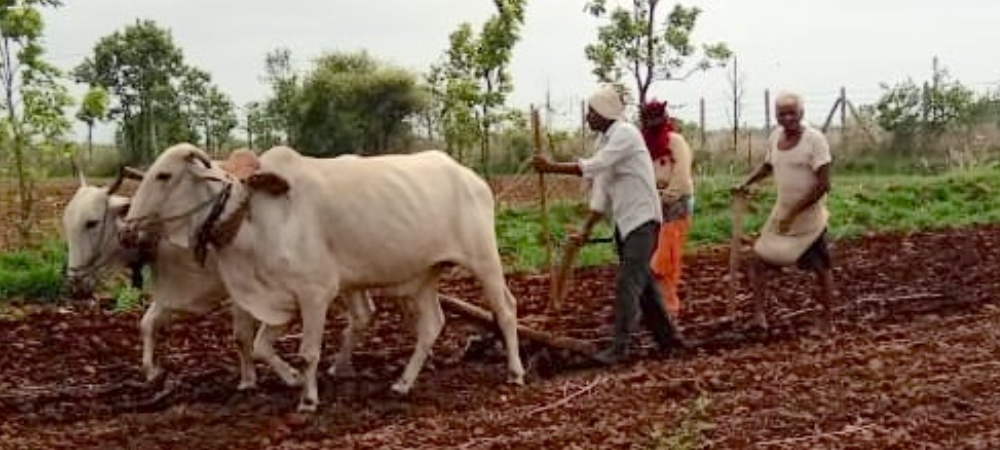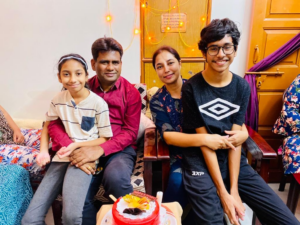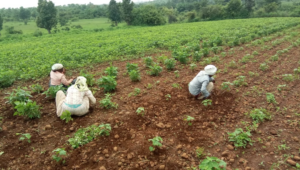
Planting Seeds of Hope
In the Indian state of Maharashtra, there are many Christian churches that operate schools, hospitals and other social initiatives. But Christianity remains in the urban areas, where less than half of the Maharashtra population lives. The majority of the population lives in rural settings, untouched by Christians.
Rural villages are often controlled by the caste system in Hinduism, a part of the culture of India. Therefore, it’s risky for Christians to preach the Gospel there. This results in poor people in rural areas having never heard the good news of Jesus Christ.
The district of Nagpur (within Maharashtra) is known for agriculture production. Pastor Anup, lead pastor of Kingdom Connection Church (KCC) in central India, said they are particularly known for growing oranges, but the area is also fertile for rice, wheat, corn and a variety of other vegetables. While large, wealthy farms operate using modern technology, poor family farms don’t have access to modern agriculture. Instead, they rely on traditional methods.
Utilizing traditional methods in the midst of unpredictable weather, lack of education and low-quality seeds results in high interest loans and failed crops. When crops fail and loans can’t be repaid, families lose their land and homes – and their children are forced to drop out of school due to lack of finances in the family. Where does this lead?
Oftentimes, farmers who are left feeling hopeless die by suicide. According to the National Crime Records Bureau of India, Maharashtra was the state with the highest number of suicides (22,746) in India in 2022.
KCC felt led by the Lord to reach out to these villagers by addressing their needs and introducing them to the hope of the Gospel. For the last year, a team in South Asia has been working hard to pull together a project to “transform the lives of marginal farmers with holistic service.”
The hope is to do this by:
- Teaching farmers integrated techniques to farm year-round
- Distributing seed and fertilizer to marginalized farmers so they don’t need to borrow money at high interest rates
- Setting up a demonstration farm so that all can learn by seeing results of modern farming
- Establishing a workplace to clean and package the produce
- Creating opportunities for students who have left school to return to their studies
- Planting a Wesleyan Church in the area
The village of Zilpa is surrounded by more than 20 other villages, so the team also hopes that the fruit of this project will spread to the surrounding villages in the future.
For now, Pastor Anup has been working to connect with villagers and discern which families might benefit from joining an initial training group. As a former principal in the Zilpa School, Pastor Anup already has the trust and respect of the community. Now as a pastor in Nagpur, he feels the burden to return to the village, this time to share the gospel.
Rev. Joshe, the director for social development programs in South Asia, is excited to help bring hope to the village of Zilpa, and is thankful to be working alongside Pastor Anup.
“He’s thinking for this community and he feels a big burden for that … so I really thank Pastor Anup for his commitment for serving the Lord,” Rev. Joshe expressed.
Along with needing financial resources to make this happen, they also hope to identify mentors, agriculturalists and pastors that will be able to take part in the project.
If you’re interested in donating to this project, scan the QR code. If you’d like to learn more about it, please email heather.auker@gponline.org to get connected with the team behind the project.
about it, please email heather.auker@gponline.org to get connected with the team behind the project.
Please join us in praying for the people of Zilpa – that they would receive the practical needs to farm successfully and the hope of Christ.


